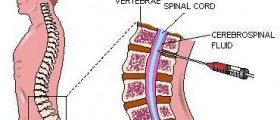
Dysautonomia is a medical term that refers to abnormal function of the autonomic nervous system. This is actually a group of rather complex medical conditions, all of which have one thing in common, inappropriate function of the autonomic nervous system. Some conditions belonging to the group are postural orthostatic tachycardia syndrome, neurally mediated hypotension, neurocardiogenic syncope, vasovagal syncope, generalized dysautonomia etc.
The autonomic nervous system is a part of the central nervous system in charge of unconscious functions of different organs and organ systems (the cardiovascular system, digestive system, metabolic system and endocrine system). If there is a problem with this system, patients develop different symptoms and signs and the treatment itself can be rather challenging.
More about Dysautonomia
One of the most common characteristics of dysautonomia is orthostatic intolerance otherwise known as the inability to remain upright. All conditions of this group may range form mild to rather severe ones. Some may even be life-threatening. Because symptoms are not unique treatment is basically individual and depends on the affected part of the autonomic nerve system.
It is estimated that childhood dysautonomia basically affects adolescents, which is explained by rapid growth in this period of life. Furthermore, women are more affected than men. In some cases the condition is triggered by previous viral infection, immunization or trauma. Rarely a person may be born with dysautonomia while certain types of the condition may also run in families.
What are Causes of Dysautonomia?
There are different causes of dysautonomia some of which cannot be fully understood. In certain number of patients dysautonomia is associated with autoimmune disorders. It can also develop as a consequence of bad body posture. In such case there is noticeable compression of important arteries and/or nerves. Brain injury, neurological diseases like Parkinson's disease, exposure to chemicals are several more causes of dysautonomia.
The condition may be also genetic or associated with hereditary connective tissue diseases (Ehlers-Danlos syndrome). Dysautonomia is additionally reported in pregnancy and may occur after physical trauma to certain parts of the autonomic nervous system.
Dysautonomia Symptoms and Signs
There are a number of symptoms patients suffering from dysautonomia may develop. For instance one may develop tachycardia, bradycardia, dangerously low blood pressure or complain about chest pain and end up with sudden drop in blood pressure. Furthermore, there is the inability to remain upright, excessive fatigue, exercise intolerance, dizziness and fainting. Nausea, visual blurring, insomnia, shortness of breath and frequent urination may occur as well. Finally, one may be anxious, suffer from migraines and show evident cognitive impairment.

















Your thoughts on this
Loading...